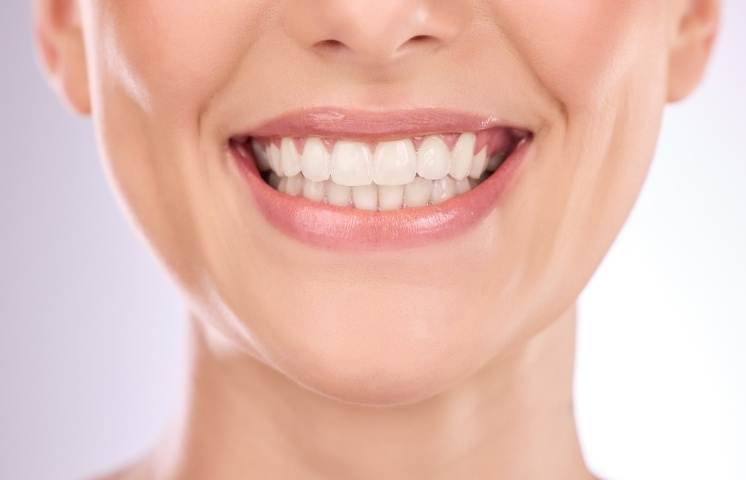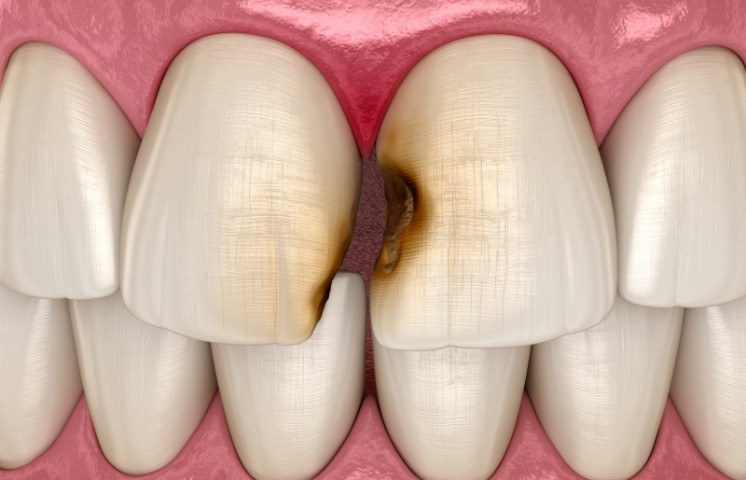We are not a registered Medicare/Medicaid Provider

When it comes to maintaining good dental health, what you eat plays a pivotal role. While regular brushing and flossing are crucial, the foods and beverages you consume can significantly impact the health of your teeth and gums. A balanced diet supports not only overall health but also enhances dental health for the entire family. This blog will delve into how diet influences dental health, offering practical tips for keeping your family’s smiles bright and healthy.
How Does Diet Affect Dental Health?
Your diet has a direct impact on the condition of your teeth and gums. What you eat can either protect your dental health or contribute to issues like cavities and gum disease. Here’s a closer look at how different dietary choices affect your dental health:
Sugar and Dental Health
- Cavity Formation: Sugary foods and beverages are notorious for contributing to cavity formation. When you consume sugary items like candies, soda, and pastries, the bacteria in your mouth feed on these sugars. This process produces acids that erode tooth enamel, leading to cavities.
- Frequent Snacking: Eating sugary snacks throughout the day can keep your mouth in a constant state of acid attack. This frequent exposure to acid increases the risk of cavities and other dental problems. Instead of snacking on sweets, choose healthier options like fruits, vegetables, or nuts.
Nutrient-Rich Foods
- Calcium and Vitamin D: Foods rich in calcium, such as dairy products (milk, cheese, yogurt) and leafy green vegetables, help strengthen your teeth and bones. Calcium is essential for maintaining strong tooth enamel and bone structure. Vitamin D is also crucial because it aids in the absorption of calcium, ensuring that your body gets the most benefit from calcium-rich foods.
- Vitamin C: Vitamin C is vital for gum health. Citrus fruits, strawberries, and bell peppers are excellent sources of this nutrient. A deficiency in vitamin C can lead to gum disease, characterized by swelling, bleeding, and inflammation. Ensuring adequate vitamin C intake helps maintain healthy gums and prevent gum disease.
Acidic Foods and Beverages
- Enamel Erosion: Foods and drinks that are high in acid, such as citrus fruits and carbonated beverages, can erode tooth enamel over time. Enamel erosion makes your teeth more susceptible to decay and sensitivity. To minimize damage, try to consume acidic foods in moderation. Additionally, rinse your mouth with water after consuming acidic foods to help neutralize the acids and reduce their impact on your enamel.
Hydration and Dental Health
- Saliva Production: Drinking enough water is essential for maintaining a healthy mouth. Water helps stimulate saliva production, which plays a crucial role in protecting your teeth and gums. Saliva helps wash away food particles and bacteria, neutralizes acids, and provides essential minerals to strengthen tooth enamel.
- Avoid Sugary Drinks: Sugary drinks like soda and fruit juices can contribute to tooth decay. They not only add extra sugar to your diet but also reduce saliva flow. Opt for water or milk as healthier alternatives to keep your teeth and gums in optimal condition.
Tips for a Dental-Friendly Diet
To support dental health for your family, consider the following dietary tips:
- Limit Sugary Snacks: Replace sugary snacks with healthier alternatives like fresh fruits, vegetables, and nuts. These options are less likely to contribute to tooth decay and provide essential nutrients for overall health.
- Stay Hydrated: Encourage your family to drink plenty of water throughout the day. Water helps rinse away food particles and bacteria, reducing the risk of cavities and keeping the mouth hydrated.
- Incorporate Dairy: Include dairy products such as milk, cheese, and yogurt in your family’s diet. These foods provide calcium and vitamin D, which are crucial for strong teeth and bones.
- Choose Whole Grains: Whole grains like brown rice, whole wheat bread, and oats are better for dental health compared to refined grains. They contain fewer added sugars and provide essential nutrients for overall health.
The Role of Regular Dental Visits
While diet plays a crucial role in maintaining dental health, regular visits to a family dentist are equally important. Routine check-ups and cleanings help catch potential issues early and ensure that your family’s dental health is on track. Here’s how a family dentist can contribute to better dental health:
Personalized Advice
A family dentist can offer personalized advice based on your family’s dietary habits and dental health. They can evaluate your diet and suggest changes that will better support dental health. This personalized approach helps address specific issues and improve overall oral care.
Professional Cleanings
Regular professional cleanings are essential for maintaining good dental health. Even with excellent brushing and flossing habits, plaque and tartar can build up on your teeth. A dentist can remove these deposits, preventing tooth decay and gum disease.
Fluoride Treatments
Th are a common recommendation from regular dentists to help protect against cavities. Fluoride strengthens tooth enamel and makes it more resistant to decay. If your family is at high risk for cavities, your dentist may suggest fluoride treatments as part of your routine care.
Family Dentist Recommendations
Your dentist can provide specific recommendations tailored to each family member’s needs. Here are a few things your dentist might suggest:
- Dietary Assessments: Your dentist may review your family’s diet and suggest changes to better support dental health. They can provide guidance on which foods to include and which to avoid for optimal oral care.
- Custom Dental Care Plans: Based on individual needs, your regular dentist can create customized care plans to maintain optimal dental health. These plans may include dietary recommendations, oral hygiene tips, and preventive treatments.
- Educational Resources: A dentist can offer educational resources to help your family understand the connection between diet and dental health. This may include brochures, online resources, or interactive tools to engage both adults and children.
Practical Dietary Changes for Better Dental Health
Making small, manageable changes to your diet can have a significant impact on your dental health. Here are some practical suggestions:
- Eat a Balanced Diet: Focus on a variety of foods that provide essential nutrients for your teeth and gums. Include plenty of fruits, vegetables, lean proteins, and whole grains in your family’s meals.
- Avoid Late-Night Snacking: Try to avoid eating close to bedtime. When you eat right before sleeping, food particles and sugar can remain on your teeth overnight, increasing the risk of decay. If you must snack, choose healthy options and brush your teeth before bed.
- Use Sugar Substitutes: If you have a sweet tooth, consider using sugar substitutes like stevia. Unlike regular sugar, these substitutes do not contribute to tooth decay and can help satisfy your cravings without harming your teeth.
Maintaining Overall Health
A healthy diet not only benefits your teeth but also supports your overall well-being. Good nutrition contributes to a strong immune system, which helps your body fight off infections, including those affecting your mouth. Combining a balanced diet with proper oral hygiene practices and regular dental visits will ensure that your family’s smiles remain healthy and bright.
Enhancing Family Dental Health
Diet plays a crucial role in maintaining dental health for every family member. By making informed dietary choices and visiting a family dentist regularly, you can help prevent dental issues and promote a lifetime of healthy smiles. Incorporate these dietary tips and make regular dental check-ups part of your family’s routine for optimal dental health. With a balanced diet and good dental care, you can support your family’s overall well-being and ensure that their smiles stay bright and healthy for years to come.
Frequently Asked Questions
Are there foods that can improve gum health?
Absolutely. Foods high in vitamin C, such as strawberries, oranges, and bell peppers, are crucial for gum health. Vitamin C helps prevent gum disease and supports the healing of gum tissues. Omega-3 fatty acids, found in fish like salmon and walnuts, also have anti-inflammatory properties that can benefit gum health.
Can drinking water affect dental health?
Yes, drinking water is beneficial for dental health. Water helps rinse away food particles and bacteria, reducing the risk of cavities. It also aids in saliva production, which naturally protects teeth from decay and helps neutralize acids produced by bacteria.
What are the best snacks for dental health?
Snacks that are low in sugar and high in nutrients are best for dental health. Examples include raw vegetables (like carrots and celery), fruits (such as apples and pears), nuts, and yogurt. These snacks provide essential vitamins and minerals without promoting tooth decay.



